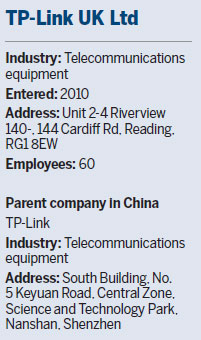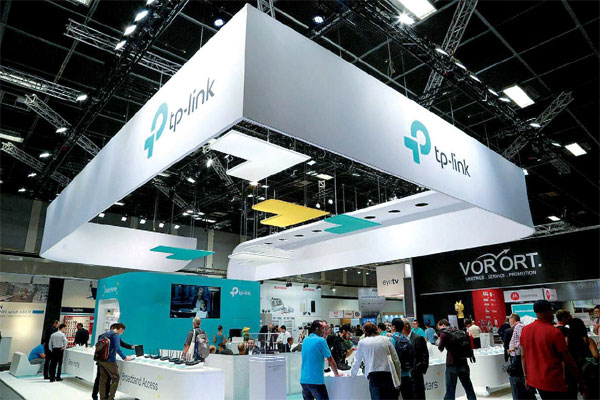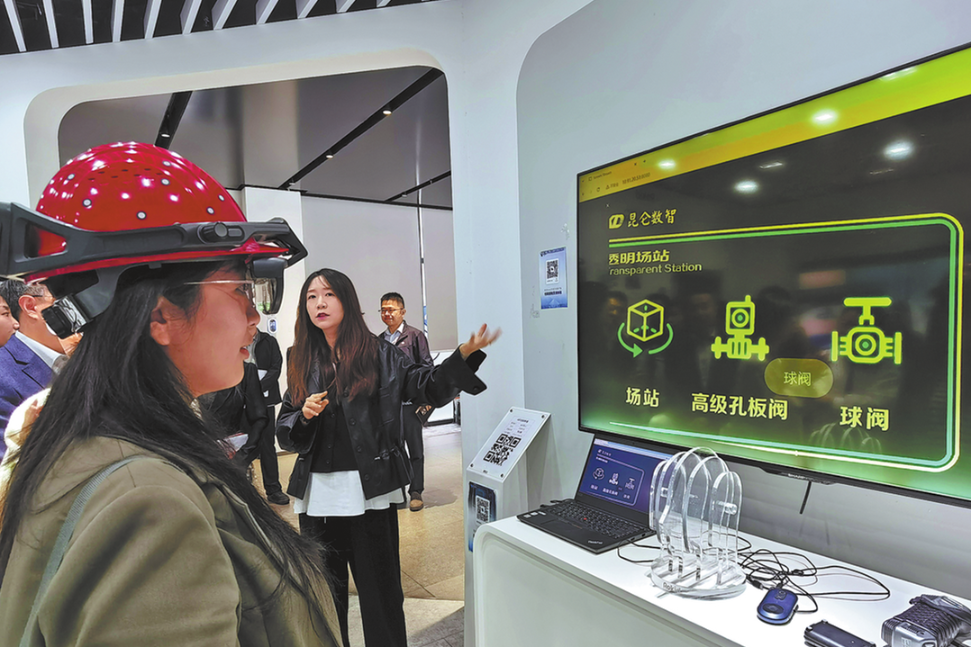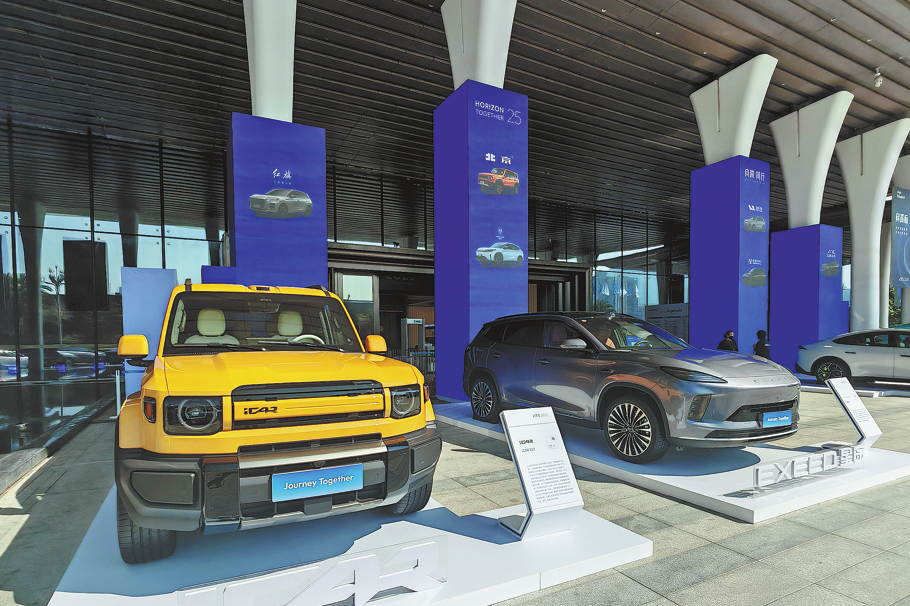The British link

Innovative Chinese telecom equipment-maker TP-Link plugs into UK market
Chinese telecommunications equipment maker TP-Link is fast expanding into the United Kingdom, selling a wide range of networking products and championing the idea of micro innovation.
Its wireless routers, power banks and other accessories may not represent groundbreaking technology, but with good design, reliable functions and value for money, they have proved popular with UK consumers.
As a newcomer in the networking equipment sector, TP-Link is already the UK's biggest seller of such products, with around a 40 percent market share, ahead of decades-old Western brands like D-Link and Netgear.
| TP-Link's booth at IFA in Berlin, the global trade show for consumer electronics and home appliances. Provided to China Daily |
In an effort to constantly innovate, TP-Link also launched its smart plug in the UK, allowing devices to be controlled from anywhere. Developed through extensive research collaboration in TP-Link's Silicon Valley research and development office, it now sells 120,000 units a month in the United States.
"Our brand's development and global expansion rides on a wave of Chinese brands going global and Chinese technology upgrades, so we invest heavily in technology R&D and place a strong strategic focus on global expansion," says Nelson Qiao, TP-Link's UK country manager.
Founded in 1996 in Shenzhen, Guangdong province, TP-Link has grown into an industry leader in China. Its process of internationalization started in 2005 when it began selling in overseas markets through distributors.
In Europe, it established a subsidiary in Germany in 2009, and subsequently expanded into the UK in 2010.

Globally, the company today has over 40 offices, with products sold in 120 countries and employing 23,000 staff.
Earlier this year, TP-Link was ranked for the 23rd consecutive quarter as the world's largest supplier of wireless local area network (WLAN) products by IDC Research, with a 41.2 percent global share.
WLAN refers to any product that connects two or more devices using wireless technology within a small geographical space, such as a router.
Qiao says one key advantage for TP-Link is product quality, combined with competitive cost and premium service. Many of its products are manufactured with top-quality components from established Western brands such as chip manufacturers Qualcomm and Broadcom.
"Our good supply chain management and manufacturing process management strategies enable effective cost management," he said.
In addition, TP-Link constantly innovates its technology. Noticing that the smart home was picking up speed as a trendy concept, where US tech giants like Google and Amazon are pushing to the market their own systems, TP-Link developed a compatible smart plug.
This allows users to switch electronic products on and off remotely using their phones. It can turn on appliances like coffee machines, washing machines, heaters and lights with a simple mobile phone command.
As an endorsement for the TP-Link smart plug's quality, Amazon sent an email to all its customers in the US in August to certify that the product is compatible with its smart home system. This led to big sales growth in the US.
More recently, TP-Link's smart plug became available in the UK through retailers like Tesco and Argos.
Another example of TP-Link's innovative product development is its wireless nano-router, which sold more than 1,000 units in the UK within a few months of its launch in 2012.
With multiple functions, including transferring wired internet access to wireless and reinforcing the existing wireless signal, the TP-Link router is different from most others available on the British market.
Other products the company sells in the UK are electronic accessories for cars, mobile devices and entertainment, such as gaming. TP-Link started to push for this market segment two years ago, with an emphasis on its products' ease of use and reliability.

For example, at the height of the game Pokemon Go's popularity this summer, TP-Link's power banks were completely sold out for a week in the UK across all major retail chains, including Amazon, Tesco, Sainsbury's and John Lewis.
As networking goods are TP-Link's major products in the UK, Qiao says his team is also working hard to defend its market share while increasingly selling into the small business market segment.
"In the small and medium business sector, we've partnered up with many local network-installing companies, and leverage on their customer networks to reach more businesses," Qiao says.
Qiao's team places greater emphasis on maintaining relationships with these customers, providing after-sale customer support.
The UK is a crucial part of TP-Link's international strategy, because having a good reputation in a mature market like the UK helps it to expand into developed and emerging markets, Qiao says.
In 2015, TP-Link generated revenue of $60 million (55.8 million euros; 47 million), representing 20 percent growth year-on-year.
Its team of 50 staff in the UK is multicultural, with only six employees assigned from headquarters.
"The large number of local hires has led to a local culture, but we still champion many typical corporate values central to the TP-Link brand," Qiao says. In particular, the Chinese value of efficiency in responding to customer needs and a hardworking attitude are key, because TP-Link usually provides responses to customers within a day, and its customer service line is available 24 hours a day.
"When we get tasks done, we say we work at TP-Link speed," Qiao says.
cecily.liu@mail.chinadailyuk.com
(China Daily Africa Weekly 12/09/2016 page29)
Today's Top News
- Xi stresses importance of raising minors' moral standards
- Coordinated reform key to country's growth
- Shandong gives new life to traditions
- China rebukes UK for 'interfering' in Hong Kong case
- Hainan FTP launches intl services portal
- HK's Jimmy Lai convicted in national security case































